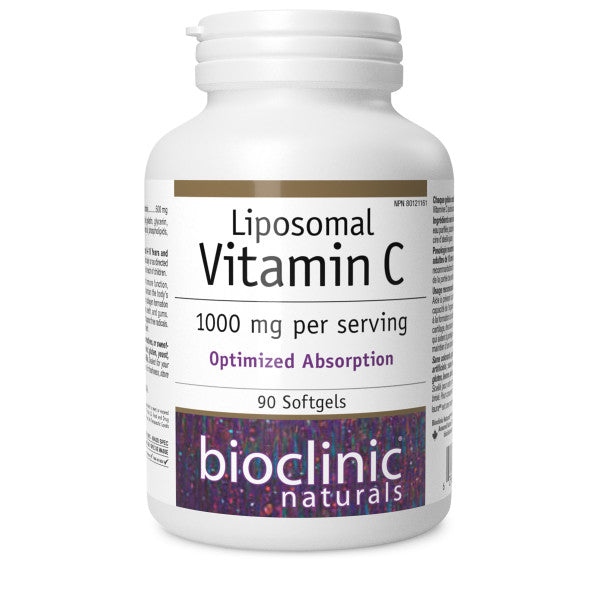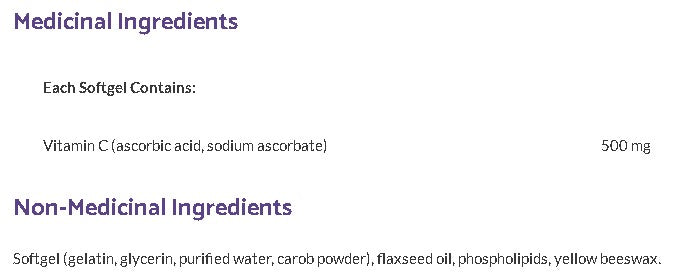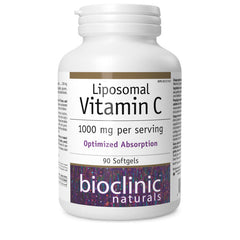



Liposomal Vitamin C
- 20.99$
0.00$- 20.99$
- Unit price
- per
Description
x- 1000 mg of vitamin C per two softgel serving
- Liposomes encapsulate vitamin C in a highly bioavailable lipid bilayer, exceeding plasma levels of standard supplements.
- Liposomes increase both peak plasma concentrations and total absorption of vitamin C.
- Gentle form of vitamin C
- Powerful antioxidant, also providing support for the immune system, collagen and bones
- GMO and gluten free
Liposomal vitamin C is a highly bioavailable form of this essential antioxidant known to protect against oxidative damage, support healthy immune function, and play a critical role in collagen synthesis. Vitamin C is a cofactor for prolyl and lysyl hydroxylases, enzymes needed for collagen development in joints and bones. High vitamin C intake has been linked to a reduced risk of osteoporotic fracture and increased bone mineral density. Vitamin C increases iron absorption, stabilizes vitamin E and folic acid, and reduces inflammation. An increased risk of deficiency has been identified in several populations, including the elderly, those with inflammatory bowel disease, cancer, or food allergies, and tobacco smokers. Vitamin C supplementation enhances immune function and is associated with a shorter duration of respiratory tract infections, such as the common cold. Supplementation has also been associated with improved liver function and blood sugar control in non-alcoholic fatty liver disease (NAFLD).
Liposomes encapsulate vitamin C in a phospholipid bilayer, thereby circumventing the usual limitations of absorption and increasing plasma ascorbic acid levels to a greater extent than conventional supplementation. 8,9 Liposomal forms of vitamin C have been shown to nearly double the bioavailability while maintaining the safety of standard ascorbic acid supplementation.
Produits recommandés
Produits récemment consultés
- Choosing a selection results in a full page refresh.



